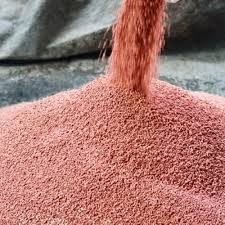
Dec . 04, 2024 23:14 Back to list
organic iron fertilizer
The Benefits and Uses of Organic Iron Fertilizer
Iron is an essential micronutrient for plant growth, playing a critical role in various physiological processes. It is a vital component of chlorophyll, which is necessary for photosynthesis, and helps in enzyme function, respiration, and the synthesis of DNA. However, many soils, particularly those that are alkaline, can be deficient in iron. This deficiency can lead to symptoms like chlorosis, where leaves turn yellow due to a lack of chlorophyll. To combat these issues, organic iron fertilizers have emerged as a sustainable solution for enhancing soil health and promoting plant growth.
What is Organic Iron Fertilizer?
Organic iron fertilizers are derived from natural sources and offer a rich supply of iron in forms that are accessible to plants. Unlike synthetic fertilizers, which may lead to nutrient runoff and soil degradation, organic options are environmentally friendly and often improve soil structure and fertility. Common sources of organic iron fertilizers include seaweed extracts, compost, and iron-rich rock powders. These materials not only provide iron but also contribute organic matter, enhancing overall soil health.
Advantages of Organic Iron Fertilizers
1. Environmentally Friendly One of the significant benefits of organic iron fertilizers is their minimal environmental impact. They reduce the risk of chemical runoff into waterways and promote biodiversity in the soil ecosystem.
2. Slow Release Organic fertilizers typically release nutrients at a slower rate compared to synthetic options. This gradual release ensures that plants have a steady supply of iron over time, reducing the risk of nutrient leaching and making it available during critical growth phases.
3. Enhancing Soil Health The organic matter in organic iron fertilizers improves soil structure, increases water retention, and promotes microbial activity. Healthy soil is key to sustainable farming and gardening practices, as it supports plant growth while reducing the need for synthetic inputs.
organic iron fertilizer

4. Plant Efficiency Organic iron fertilizers enhance the plant's ability to absorb nutrients. They often come with additional micronutrients that support overall growth and development, leading to healthier plants.
Application Methods
Applying organic iron fertilizers can vary depending on the specific product and the needs of the plants being treated. Common methods include
- Top Dressing Sprinkling the fertilizer on the soil surface around the plant base can improve availability as it breaks down and integrates with the soil. - Soil Incorporation Mixing the fertilizer into the soil before planting can enhance the initial availability of iron and other nutrients during the early growth phases.
- Foliar Application Some organic iron fertilizers can be applied directly to plant leaves. This method allows for rapid uptake of iron, particularly useful for correcting chlorosis symptoms quickly.
Conclusion
Incorporating organic iron fertilizers into agricultural practices and gardening routines provides a myriad of benefits, particularly in iron-deficient soils. By opting for organic options, cultivators can enhance soil health while also benefiting the plants they grow. As sustainable farming continues to gain traction, the use of organic iron fertilizer is likely to become more prevalent, aligning agricultural practices with ecological principles. For anyone looking to promote vibrant and healthy plant growth, embracing organic iron fertilizers could be a fundamental step toward achieving those goals.
-
10 10 10 Fertilizer Organic—Balanced NPK for All Plants
NewsJul.30,2025
-
Premium 10 10 10 Fertilizer Organic for Balanced Plant Growth
NewsJul.29,2025
-
Premium 10 10 10 Fertilizer Organic for Balanced Plant Growth
NewsJul.29,2025
-
Premium 10 10 10 Fertilizer Organic for Balanced Plant Growth
NewsJul.29,2025
-
50 Pound Bags of 13-13-13 Fertilizer for All Plants – Bulk & Organic Options
NewsJul.28,2025
-
High-Efficiency 15-30-15 Granular Fertilizer for Healthy Crops
NewsJul.28,2025
